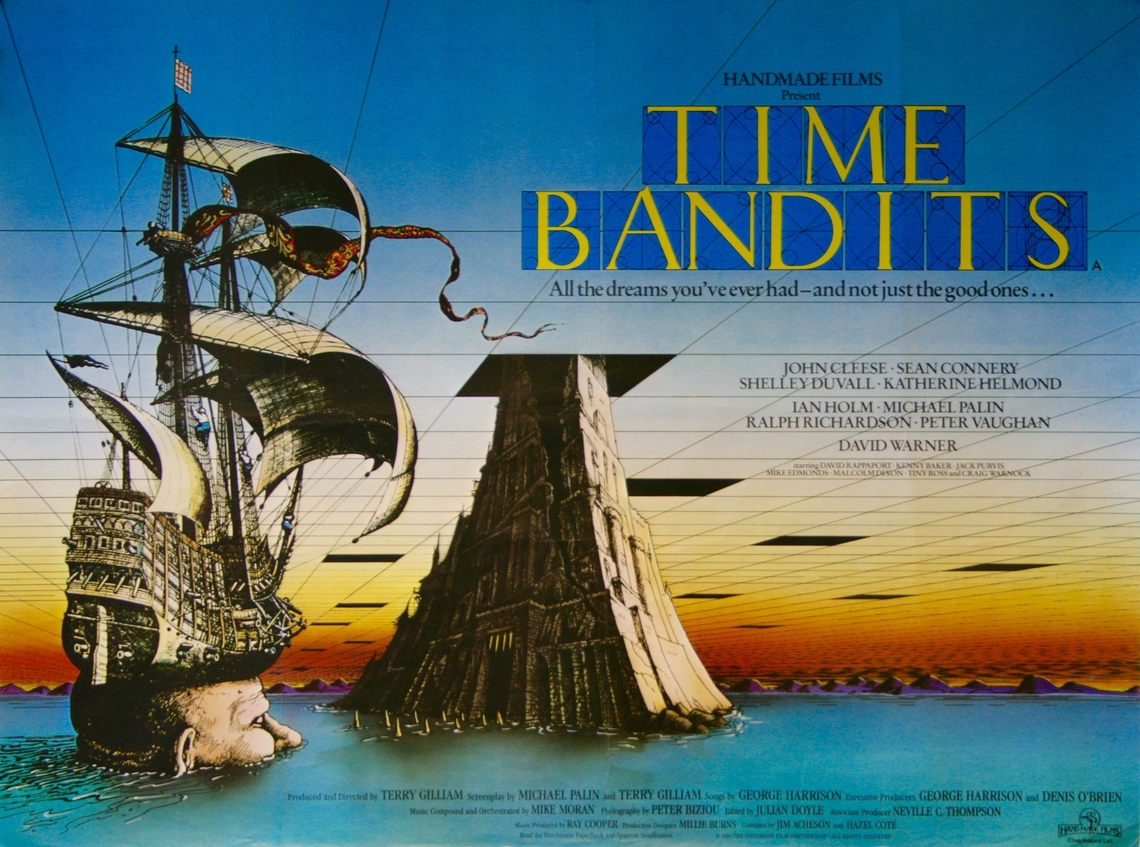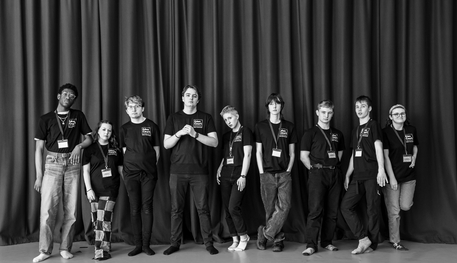Ahead of this week’s BFI Recommends screening, Eden Court Cinema Youth Board’s latest blog looks at how Time Bandits follows in the footsteps of The Wizard of Oz and Alice in Wonderland.
In Time Bandits, Kevin, unhappy with his home life and his microwave-obsessed parents, is swept away on a whimsical and stupendous time heist among 6 dwarven thieves (not 7, in order to avoid Disney’s Lawyers).
Firstly, through the intricate set design of Kevin’s room, the events of the film are foreshadowed: toy Greek soldiers, drawings of ships and knights, a model of Napoleon. This eclectic mix of objects not only suggests Kevin’s imaginative mind, supporting the dream argument, but also an insert of a chessboard, toy tank and wooden blocks on the floor exactly mirrors the layout and set of the final showdown - with giant lego bricks littering the fortress of darkness. We are put in a similar position to Dorothy’s parents in The Wizard of Oz - led to not believe the story to be entirely true - a child's fantasy - but we indulge in it anyway.

However, unlike The Wizard of Oz, the illusion of a fantasy comes crashing down with Polaroid pictures of the adventure revealed to remain in Kevin’s bag. This subversion allows the audience to make up their own mind, is the ending merely symbolic or was the journey real? Furthermore, similarly to The Wizard of Oz, Gilliam used his film to show a perspective on materialism. The Wizard of Oz shows a guise of the American Dream with the Emerald City representing freedom and prosperity, but this falls apart with the reveal of the man behind the curtain (who had somehow managed to gaslight a whole nation into believing that his city was made out of Emeralds by forcing them to wear green tinted glasses).
Similarly, Time Bandits muses upon this topic, as Kevin’s parents are shown to be obsessed with their kitchen appliances, comparing themselves to their neighbours. Conclusively the primary antagonist of Time Bandits, the very personification of evil is obsessed with computers and seeks to own the map of time for himself. I think it is poignant that this pragmatism of the antagonist is in binary opposition to the imaginative romantic ideals of Kevin - suggesting that evil is aligned with materialism and good with relinquishing such ambitions.
The film’s charm lies in its subtle treatment of these complex themes, blending Monty Python-style dry humour and satirical takes on historical situations with the inherent sense of awe from the formalist effects and set pieces. But unlike The Life of Brian or The Meaning of Life, Time Bandits strikes a balance between satire and adventure, ensuring that the story remains central. Terry Gilliam’s ability to combine these elements allows Time Bandits to transport its audience, as all good fantasy should.
BFI Recommends: Time Bandits Free Screening for 15 - 26 year olds screens this Wed 26 June.
This blog was written by:

